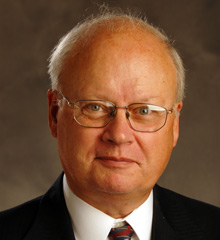Background of 2 Timothy
Revised by Mary Hinkle Shore, 10/23
According to details within the letter itself, PaulThe Apostle Paul, originally known as Saul of Tarsus, was the author of several New Testament letters and the founder of many Christian communities. More is imprisoned (1:8, 16; 2:9; 4:16), presumably in Rome (1:17), and he writes to TimothyThe companion on Paul’s later journeys for whom two pastoral epistles are named. More, who is at Ephesus (1:18; 4:12). Paul is at the point of martyrdom (4:6), and he calls upon Timothy to be faithful in ministry, proclaiming the gospel that he learned from Paul, and even being willing to suffer for it. If all that is so, the book would have been written late in Paul’s career and after his arrival in Rome (Acts 28:16). It is more probable, however, that 2 Timothy is a deutero-Pauline bookDeutero-Pauline books are New Testament epistles ascribed to the Apostle Paul but were not written by him. Ephesians, Colossians, 2 Thessalonians, 1 Timothy, 2 Timothy, and Titus claim Pauline authorship and show Paul’s influence, but a majority of scholars judge them to have been written… More, written sometime after the death of Paul. It presupposes a background in which false teachers have entered the community for which the book was written. According to the writer, they “have swerved from the truth by claiming that the resurrection has already taken place” and are “upsetting the faith of some” (2:18), which may refer to a type of incipient GnosticismGnosis means “knowledge,” although it often refers to secret or mystical knowledge revealed to a specialized few. “Gnosticism” is a generalized term of reference to movements during the second and subsequent centuries that taught, contrary to other Christian teachings, that matter was evil and salvation… More. The writer seeks to combat the false teachers by appealing to Paul as a suffering apostleDerived from a Greek word meaning “one who is sent,” an apostle is a person who embraces and advocates another person’s idea or beliefs. At the beginning of his ministry Jesus called twelve apostles to follow and serve him. Paul became an apostle of Jesus… More. The fact that Paul suffers for the faith attests that both he and his gospel are authentic. It was commonly thought in early Christianity that false teachers would not endure suffering.
